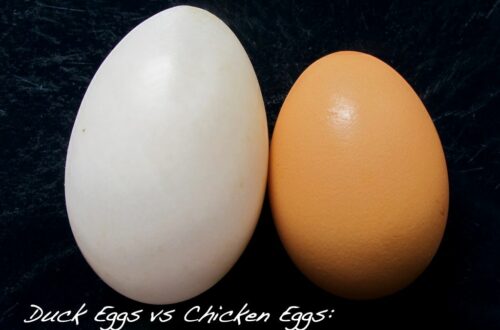Simple sugars, also known as simple carbohydrates, are composed of one or two sugar molecules that are quickly broken down and absorbed by the body. They are commonly found in various foods and beverages and provide a rapid source of energy. While they are essential for providing fuel to the body, excessive consumption of simple sugars can lead to health risks, including weight gain, insulin resistance, and an increased risk of chronic diseases. In this comprehensive guide, we’ll explore the definition of simple sugars, provide lists of foods high in simple sugars, and discuss the potential risks associated with their consumption.
Definition of Simple Sugars
Simple sugars, chemically known as monosaccharides and disaccharides, are the most basic form of carbohydrates. Monosaccharides consist of a single sugar molecule, while disaccharides consist of two sugar molecules linked together. The three main types of monosaccharides are glucose, fructose, and galactose, while common disaccharides include sucrose (glucose + fructose), lactose (glucose + galactose), and maltose (glucose + glucose). Simple sugars are characterized by their sweet taste and rapid absorption into the bloodstream, providing a quick source of energy.
Foods High in Simple Sugars
Simple sugars are naturally present in many foods, particularly those that are sweet-tasting. Some common sources of simple sugars include:
Fruits
Bananas
While bananas are rich in fiber and vitamins, they also contain natural sugars, primarily glucose, fructose, and sucrose.
Grapes
Grapes are naturally high in fructose, making them a sweet and satisfying snack.
Apples
Apples contain a combination of glucose, fructose, and sucrose, along with fiber and antioxidants.
Sweeteners
Table Sugar (Sucrose)
Table sugar, also known as sucrose, is a common sweetener made from sugar cane or sugar beets. It consists of equal parts glucose and fructose.
Honey
Honey is a natural sweetener produced by bees from the nectar of flowers. It contains a mixture of glucose and fructose, along with trace amounts of other sugars and nutrients.
Maple Syrup
Maple syrup is a sweet syrup made from the sap of maple trees. It primarily contains sucrose, along with small amounts of glucose and fructose.
Dairy Products
Milk
While milk contains lactose, a disaccharide made up of glucose and galactose, it is considered a source of simple sugars. However, milk also provides essential nutrients such as protein, calcium, and vitamin D.
Processed Foods and Beverages
Soda
Carbonated soft drinks are notorious for their high sugar content, typically in the form of sucrose or high-fructose corn syrup.
Candy
Candy and other sweets often contain large amounts of added sugars, contributing to their sweet taste and high calorie content.
Baked Goods
Cakes, cookies, pastries, and other baked goods are often made with refined sugars, contributing to their sweet flavor and indulgent appeal.
Risks Associated with Excessive Simple Sugar Consumption:
While small amounts of simple sugars are necessary for providing energy to the body, excessive consumption can have negative health consequences. Some potential risks associated with high simple sugar intake include:
Weight Gain and Obesity
Simple sugars are rapidly absorbed into the bloodstream, leading to spikes in blood sugar levels and subsequent insulin release. Over time, frequent blood sugar spikes and insulin surges can contribute to weight gain and obesity, particularly when coupled with a sedentary lifestyle and excessive calorie intake.
Insulin Resistance and Type 2 Diabetes
Chronic consumption of high levels of simple sugars can lead to insulin resistance, a condition in which the body’s cells become less responsive to insulin’s effects. Insulin resistance is a hallmark of type 2 diabetes and can eventually lead to elevated blood sugar levels and other metabolic abnormalities.
Cardiovascular Disease
Diets high in simple sugars have been associated with an increased risk of cardiovascular disease, including heart disease, stroke, and hypertension. Excessive sugar consumption can lead to elevated triglyceride levels, inflammation, and oxidative stress, all of which are risk factors for cardiovascular problems.
Dental Cavities and Tooth Decay
Simple sugars provide a ready source of energy for oral bacteria, leading to the production of acids that can erode tooth enamel and contribute to dental cavities and tooth decay. Frequent consumption of sugary foods and beverages, particularly between meals, can increase the risk of dental problems.
Moderating Simple Sugar Intake
While it’s essential to be mindful of your simple sugar intake, there’s no need to eliminate them entirely from your diet. Instead, focus on moderation and making healthier choices:
Choose Whole Foods
Opt for whole, minimally processed foods that are naturally low in added sugars, such as fruits, vegetables, whole grains, lean proteins, and dairy products.
Read Labels
Pay attention to food labels and ingredient lists to identify sources of added sugars in processed foods and beverages. Look for terms like sucrose, high-fructose corn syrup, cane sugar, and fruit juice concentrates.
Limit Sugary Beverages
Reduce your consumption of sugary beverages such as soda, sports drinks, sweetened teas, and fruit juices. Instead, choose water, herbal tea, or sparkling water flavored with fresh fruit.
Practice Portion Control
Enjoy sugary treats and desserts in moderation, and be mindful of portion sizes. Consider sharing desserts with friends or saving half for later to avoid overindulging.
Balance with Fiber and Protein: Pair simple sugars with sources of fiber and protein to help slow the absorption of sugar into the bloodstream and promote feelings of fullness. For example, enjoy fruit with nuts or yogurt for a balanced snack.
Conclusion
In conclusion, simple sugars are a natural component of many foods and beverages and provide a quick source of energy for the body. However, excessive consumption of simple sugars can lead to various health risks, including weight gain, insulin resistance, and an increased risk of chronic diseases such as type 2 diabetes and heart disease. By being mindful of your simple sugar intake, choosing whole foods, reading labels, and practicing moderation, you can enjoy a balanced diet that supports your overall health and well-being. Remember that small indulgences are okay in moderation, but it’s essential to prioritize nutrient-rich foods and make informed choices about your dietary habits.
- Top CBD Capsules: A Comprehensive Review By Plain Jane - August 7, 2024
- Benefits of Butchers Broom Supplements - April 2, 2024
- Benefits of Burdock Supplements - April 2, 2024






